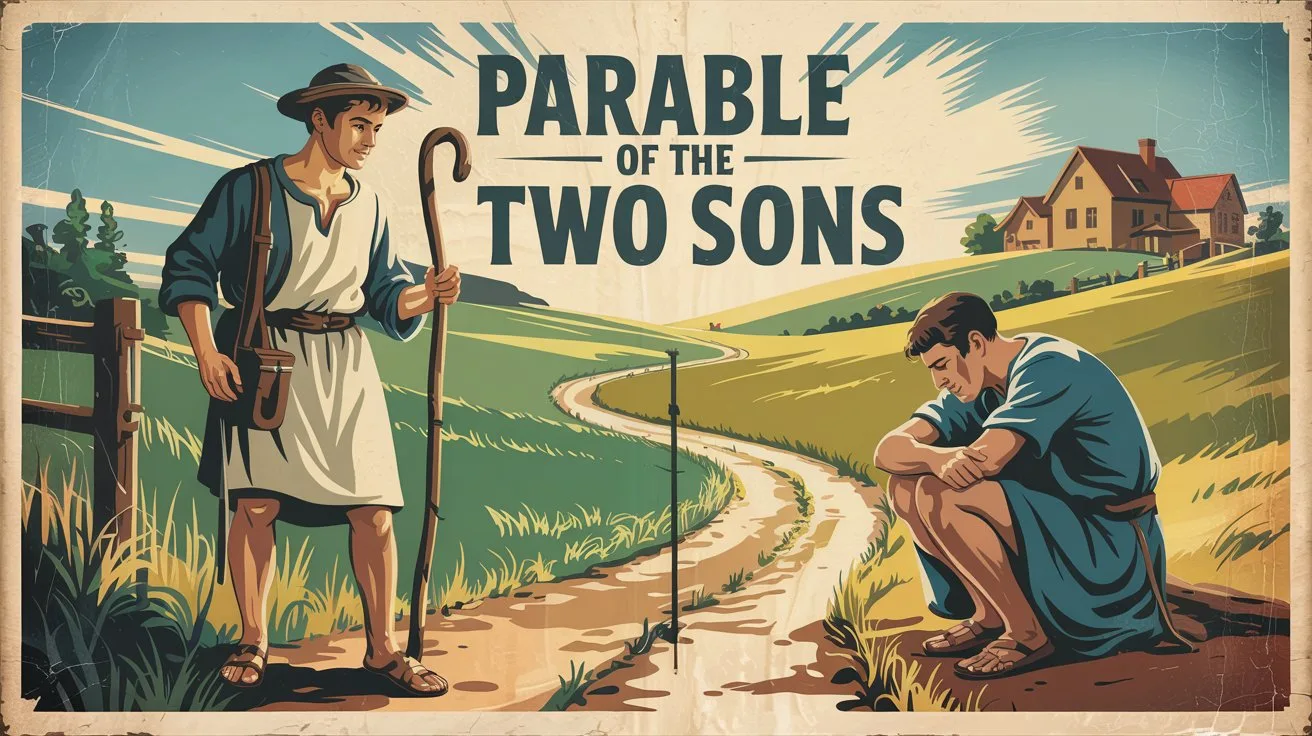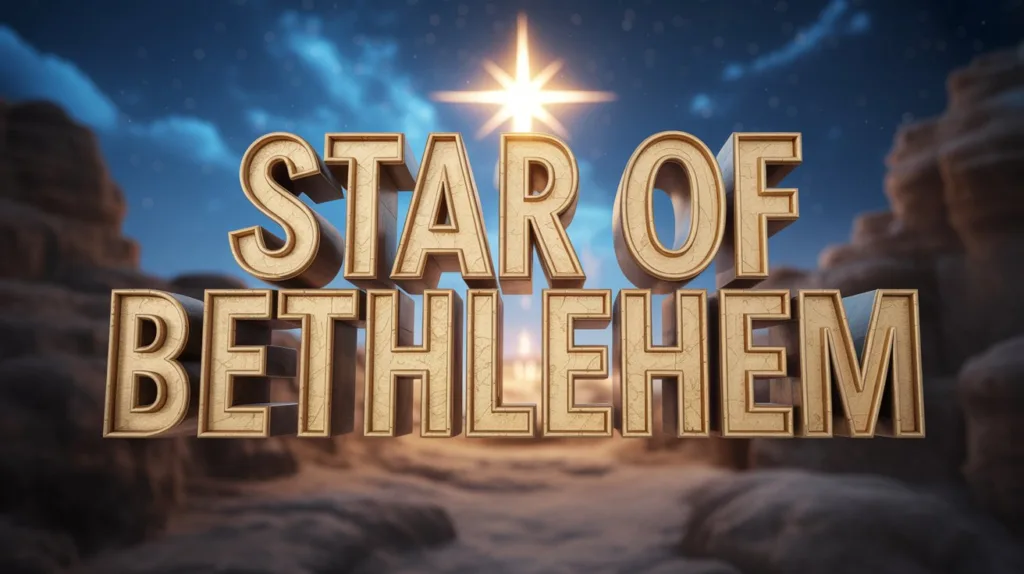Jesus is in Jerusalem, days before the crucifixion. He’s confronting the religious leaders, chief priests and elders, who questioned His authority. Instead of answering directly, He gives them a series of parables, each exposing their spiritual blindness. One of those parables is about two sons. He says in Matthew 21:28–30,
“But what do you think? A man had two sons, and he came to the first and said, ‘Son, go, work today in my vineyard.’ He answered and said, ‘I will not,’ but afterward he regretted it and went. Then he came to the second and said likewise. And he answered and said, ‘I go, sir,’ but he did not go.”
The Message in the Parable
Jesus asks,
“Which of the two did the will of his father?” (Matthew 21:31).
They rightly answer, “The first.”
The first son represents those who at first reject God’s will, sinners, tax collectors, harlots, but later repent and obey. The second son represents the religious elite of Israel who profess obedience but do not follow through with true submission to God’s will. Jesus then declares in Matthew 21:31-32, “
Assuredly, I say to you that tax collectors and harlots enter the kingdom of God before you. For John came to you in the way of righteousness, and you did not believe him; but tax collectors and harlots believed him; and when you saw it, you did not afterward relent and believe him.”
Why Jesus Taught This Parable
Jesus is directly rebuking the religious leaders for their hypocrisy. Isaiah 29:13 matches this perfectly:
“These people draw near with their mouths and honor Me with their lips, but have removed their hearts far from Me.”
They had an outward appearance of obedience (like the second son), but inwardly, they were rebellious. Jesus is exposing their pretense. In contrast, the sinners who repented under John’s preaching (the first son) are commended. They initially resisted, but when confronted with the truth, they turned to God. Ezekiel 18:21 backs this up:
“But if a wicked man turns from all his sins which he has committed, keeps all My statutes, and does what is lawful and right, he shall surely live; he shall not die.”
Israel and the Gentiles
This parable speaks deeply to the state of Israel and the Gentiles. Israel was the chosen people (Deuteronomy 7:6–8), entrusted with the Law and the covenants (Romans 3:1–2; 9:4–5). They professed to know God (Titus 1:16), but many rejected the Son and refused to believe in John’s message or Christ Himself.
Meanwhile, the Gentiles, who were once alienated (Ephesians 2:12), began to enter the Kingdom through faith, just like the first son. Paul explains this in Romans 9:30–31:
“What shall we say then? That Gentiles, who did not pursue righteousness, have attained to righteousness… But Israel, pursuing the law of righteousness, has not attained to the law of righteousness.”
Romans 11 gives further explanation that Israel’s current rejection is partial and temporary, allowing the fullness of the Gentiles to come in. But God will keep His covenant with Israel (Romans 11:25–27).
Repentance Over Profession
One of the clearest themes in this parable is that repentance matters more than mere profession. Luke 13:3 makes this unmistakable:
“I tell you, no; but unless you repent you will all likewise perish.”
Jesus is not impressed with words. He’s looking for obedience, as James 1:22 says,
“But be doers of the word, and not hearers only, deceiving yourselves.”
This echoes the message throughout the Old Testament: God desires obedience more than sacrifice (1 Samuel 15:22) and brokenness over ritual (Psalm 51:17).
My Final Thoughts
The Parable of the Two Sons is not about mere moralism; it is a spiritual x-ray. It exposes the heart. One son talked back but repented. The other son talked right but disobeyed. It reminds us that God sees beyond the lips—He sees the heart (1 Samuel 16:7). It also calls out to Israel and the Church today. Has the Church become like the second son, religious in form but empty in obedience? And has Israel, though once rebellious, still destined to be restored?
The parable is also very personal. It asks us: which son are we? Have we said “yes” to God but failed to act? Or did we once rebel, but now have repented and followed? It’s not how you start. It’s how you finish.





 Get the book that teaches you how to evangelize and disarm doctrines from every single major cult group today.
Get the book that teaches you how to evangelize and disarm doctrines from every single major cult group today.